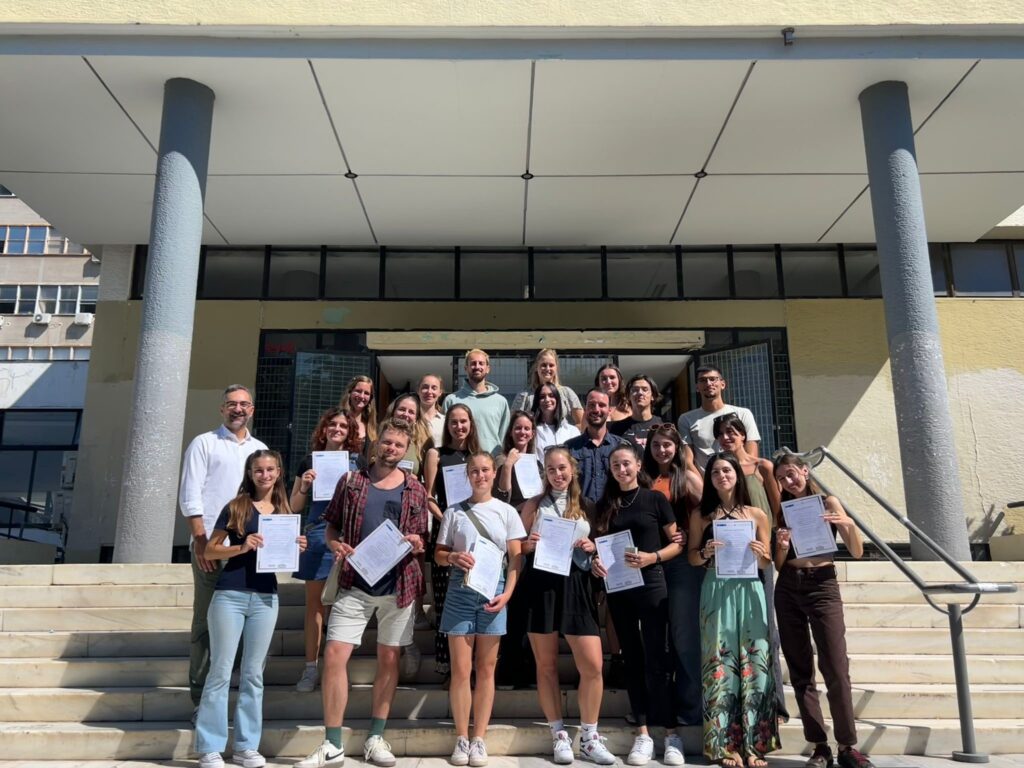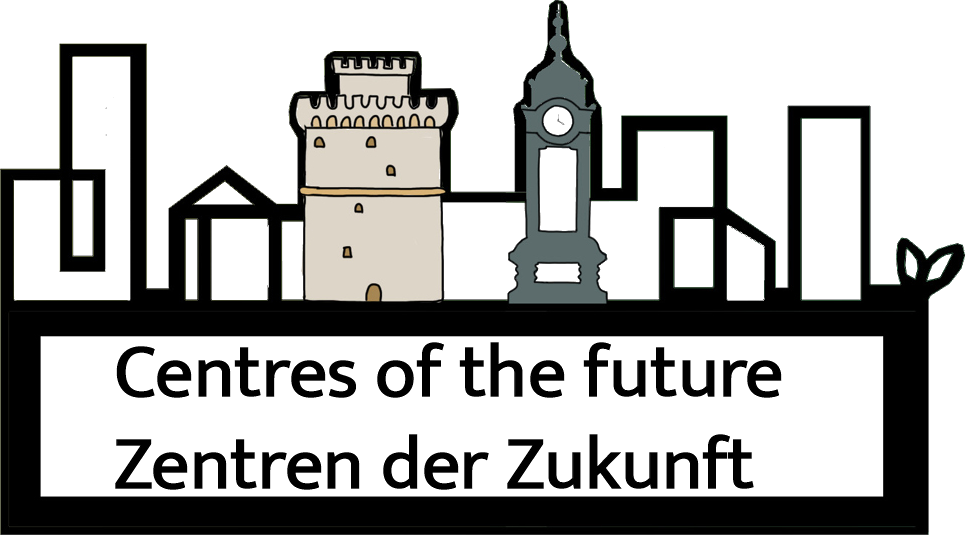Summer Schools will be held in Thessaloniki (2023 & 2025) and Hannover (2024) in annual rotation. The Summer Schools will focus on the analysis of the two cities and regions, the different planning systems and cultures, and the development of solutions (e.g. Smart City concepts, 100 Resilient City Thessaloniki, etc.). The goal is to bring participants into exchange in interdisciplinary teams. The framework program of the Summer Schools consists of thematic excursions, interdisciplinary workshops, group work and presentations. A joint dinner rounds off the Summer School and enables networking after the one-week exchange.
Summer School 2024 in Thessaloniki
„Thessaloniki as Circular City?! – Planning for sustainable social and inclusive communities”
From September 23 to 27, 2024, ten students each from Leibniz University Hannover (LUH) and Aristotle University of Thessaloniki (AUTh) participated in a Summer School in Thessaloniki, Greece. The Summer School was held within the framework of the DAAD-funded university partnership “FutureCentres” on the topic “The Future of Inner-City Spaces in Thessaloniki”; it was organized and led by Dr. Lena Greinke, Dr. Linda Lange, and Assoc. Prof. Loukas Triantis.
At the beginning of the Summer School, the students from the Landscape Department of LUH and the School of Architecture of AUTh were warmly welcomed, and the week’s task was presented to them. The students, grouped into small teams comprising both Greek and German participants, worked collaboratively on the task and presented their findings at the end of the week.
The aim of the Summer School was to explore the concept of Circular Cities in Thessaloniki at various levels and from different perspectives, gaining an integrated view of Thessaloniki to propose solutions for current challenges. This required understanding the historical development and analyzing the circular economy concept within the city of Thessaloniki. Based on these insights, students were able to develop governance options, management approaches, and design solutions that could contribute to an attractive, resilient, and sustainable future for Thessaloniki.
The groups focused on four main themes: “Space: Built Environment and Urban Development,” “Links: Mobility, Economy, and Energy,” “Communities: Society, Culture, and Participation,” and “Recycling: Waste Management, Food, and Nutrition.”
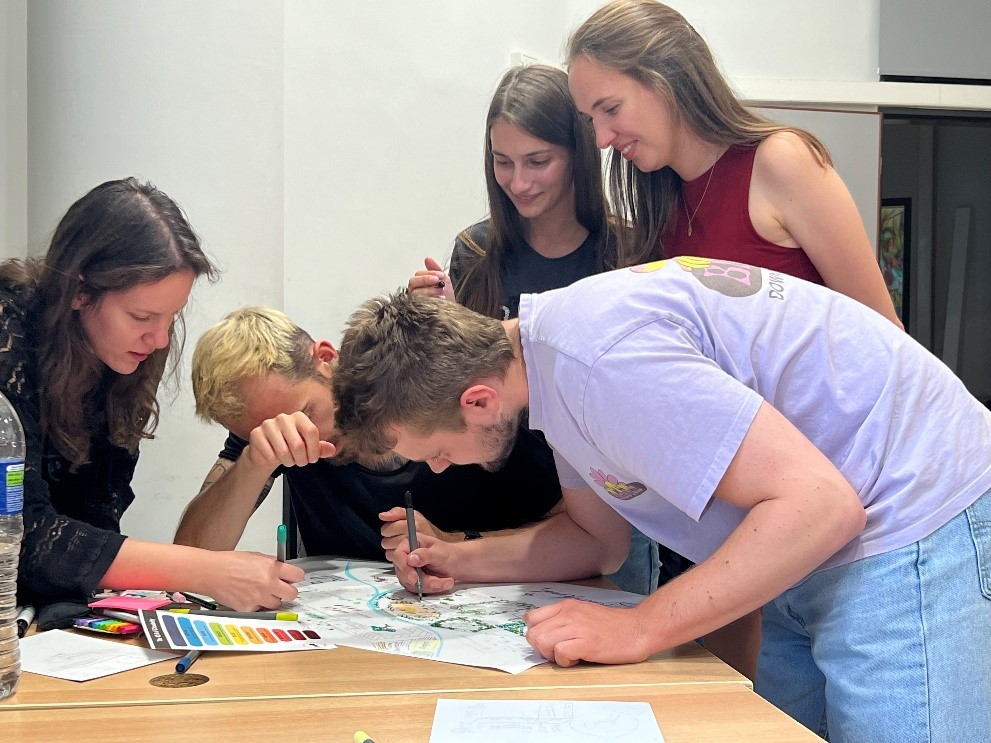
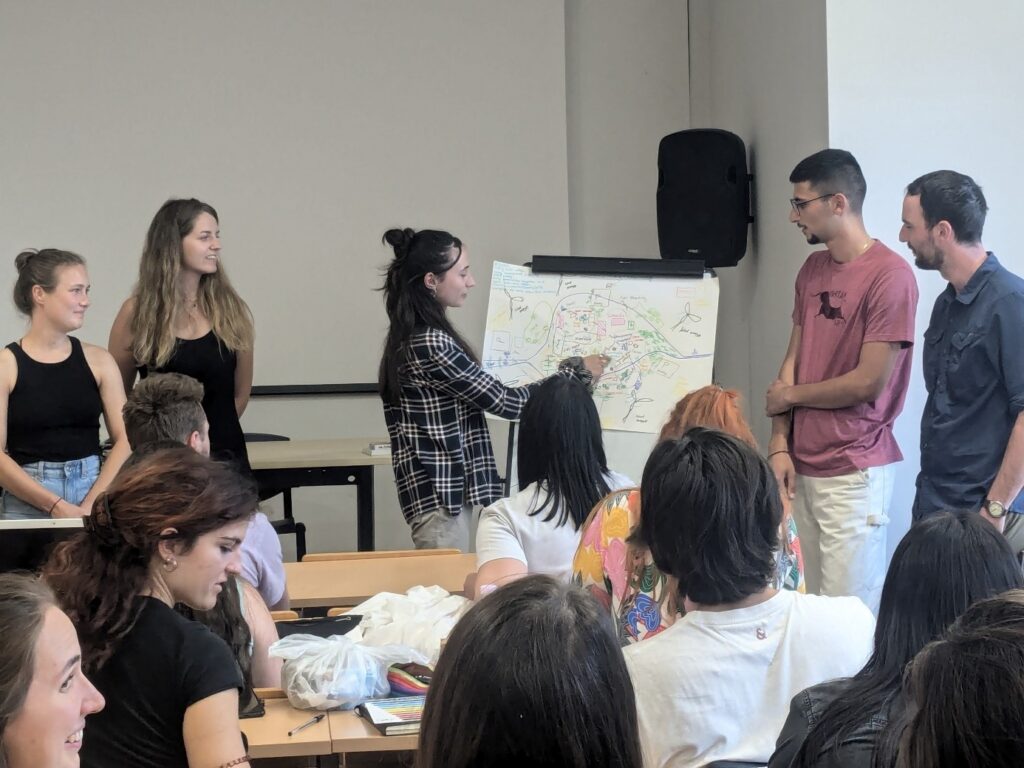
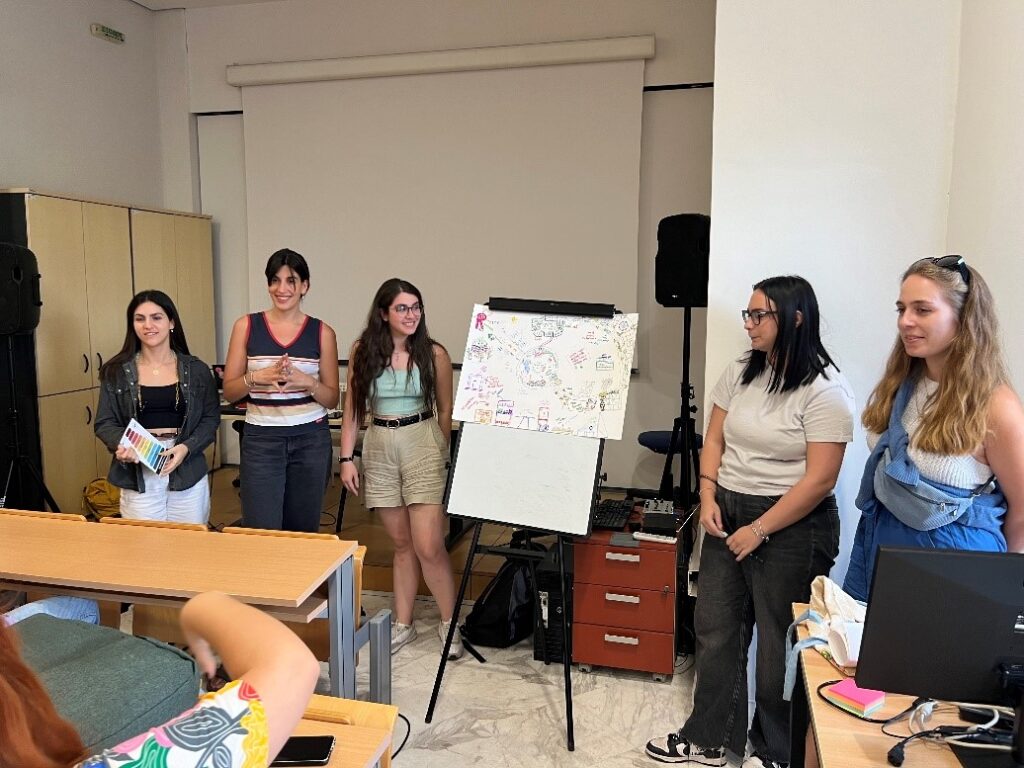
The participants began the Summer School with a lecture by Assoc. Prof. Loukas Triantis on the Greek planning system. This was followed by an engaging presentation by Assoc. Prof. Garyfallia Katsavounidou from the School of Spatial Planning and Development at AUTh on cities, resources, and climate change in the context of circularity. She first presented a critical understanding of circularity and highlighted the role of cities. She then outlined urban planning strategies to respond to the impacts of climate change.
On the second day, the program began with another interesting and informative talk by Dr. Federica Scaffidi from the Institute of Urban Design and Planning at LUH on circular renewal for a sustainable urban future. In the afternoon, Sofia Petridou and Sofia Sarri from the “InCommOn Team” Thessaloniki conducted a workshop on Circular Neighborhoods. The participants then had time to continue their group work, discussing it in a mid-week interim presentation. The groups exchanged feedback and had ongoing opportunities to ask questions and engage in discussions.
On the last day of the Summer School, the small groups presented their results on their respective focus topics and received a certificate of participation. A shared dinner on the penultimate evening rounded off this year’s program.
